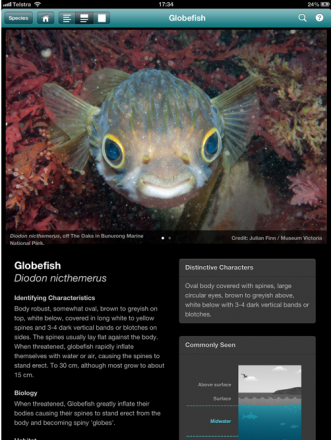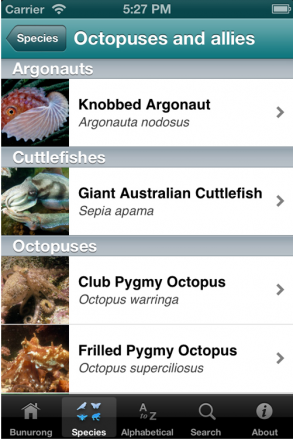Presidential Nominations – ASC AGM 2012
The National Executive is pleased to announce there are two nominations for the position of National President of Australian Science Communicators for the upcoming AGM: Dr Rod Lamberts and Assoc Prof Nancy Longnecker.
Please find below nomination statements from the two candidates. Note that members who have designated proxies can now indicate how they will vote in the Presidential election. The protocol and form for nominating proxies and voting instructions can be found here: http://wp.me/p1Zzkn-ep6.
Dr Rod Lamberts
Rod.lamberts@anu.edu.au
Hi Folks,
I present here two broad, big-picture visions I have for the ASC should I be elected to role of president for 2013, and also a very brief bio focusing on elements of my experience to help you judge my capacity to deliver.
If you want to quiz me on details or would like additional information, I’d be more than happy to oblige!
Cheers for now,
Rod
What I have in mind
Professionalizing the ASC
The public profile of science communication is the highest it’s ever been, and this trend shows no sign of reversing. With the L’Aquila earthquake case in Italy and the re-emergence of ASC-list discussions about instigating a code of conduct/ practice/ ethics, it is clearly time to reflect on what the ASC is now, and how it should evolve.
To that end, a major goal I would have as president would be to initiate the discussions and negotiations that would lead to the ASC becoming a professionalized body. This would include instituting a code of practice/conduct/ethics (and all that entails) and re-visiting the idea of the ASC becoming an accrediting body for both practitioners and training (a discussion I believe Jenni Metcalfe kicked-off during her presidential years).
This process would also involve exploring the nature and perceived benefits of ASC membership among existing ASCers, and identifying how we might extend the appeal of ASC membership to broader audiences.
Profile, position, partnerships (and prestige!)
Intimately entwined with professionalizing the ASC is raising the profile and prestige of the organization, and through that, the profile and prestige of its members. I believe that the ASC would benefit from increasing its public visibility as an organization, and also its strategic partnerships with relevant associations and institutions. Jesse Shore’s successes in getting formal ASC involvement in Inspiring Australia projects has been a pivotal early step in doing this, and something I believe should be nurtured and expended.
I would also like to see the ASC making regular, public comment on matters that are pertinent to its goals and its members, and this in ways that raise the public profile of science communication still further. We need to start speaking-up as an association and not just rely on the efforts of individual members.
Could I do the job?
- As the Chair/Convener of the 2012 ASC Conference, I have already demonstrated I can work successfully and effectively with the ASC council and executive.
- I have a 15 year history working specifically in science communication in Australia and the region. Two highlights of this are my current roles as:
- Deputy director of the Australian National Centre for the Public Awareness of Science (CPAS) at the ANU
- Consultant to UNESCO on science communication and science and public policy
- I’ve been delivering training in general communication or science communication for nearly 20 years and have been designing and convening university programs in science communication since 2000. I have also been conducting and supervising science communication research projects since 1998, a journey that began with my PhD research in science communication at the ANU.
- I have a solid and continuously growing public presence commenting and advising on science, science communication and science policy matters. Examples of these can be found on The Conversation, a number of ABC sites (e.g., The Drum, ABC science), and in numerous radio and newspaper interviews over the last few years.
- Finally, I have a large national and international network of well-established scientists, science communicators, government and policy professionals, and academics.
Assoc Prof Nancy Longnecker
nancy.longnecker@uwa.edu.au
I ask for your support in the opportunity and challenge of working as ASC President in 2013. This post describes my vision and what I would bring to the role.
It is an exciting time to be a science communicator. Science communication is receiving wider recognition as a profession and as an academic discipline both nationally and internationally. A window of opportunity exists to increase the professionalisation of our field. This will lead to greater respect for the skills and expertise that are necessary to communicate science well. Appropriate valuing of science communication as a suite of skilled activities will see science communicators participating more often in strategic development in all stages and at all levels of science and technology projects. Development of a code of ethics for ASC is timely as it will assist the definition and valuing of what we do.
I was a science communicator before I had heard the term, becoming an official science communication enthusiast after attending the inspiring international PCST conference in Melbourne in 1996. I have been an active member of ASC ever since, serving as President of the WA branch and branch representative with the national ASC Council from 2004 to 2007 and ASC-VP in 2005.
ASC represents professionals in many areas – in corporate communications, informal education, science media and more. This is a challenge for ASC as our members have diverse needs. But diverse membership is also one of the strengths of ASC and provides the chance for members to network and benefit from a range of expertise and multiple perspectives. My work experiences include volunteer, professional and academic science communication. I was a science communicator with one of the earliest CRCs (CLIMA, from 1994- 2002, known for its creative approaches to science communication) and Associate Professor of science communication (UWA, 2002 – present).
I currently coordinate UWA’s academic science communication program and have been a driving force in it. Within a decade, the UWA program has grown to become one of the major academic programs in Australasia, providing postgraduate coursework and research and an undergraduate major in science communication.
Previous presidents and national councils have worked hard over many years to position ASC well. Science communication is being increasingly recognised as valuable activities that benefit science and society. We are in a good place to influence the field positively for ourselves and for future professionals.



